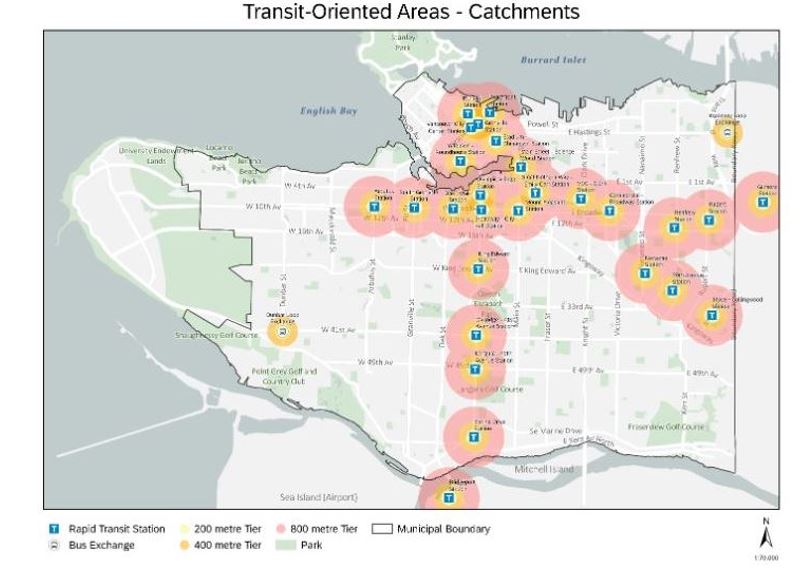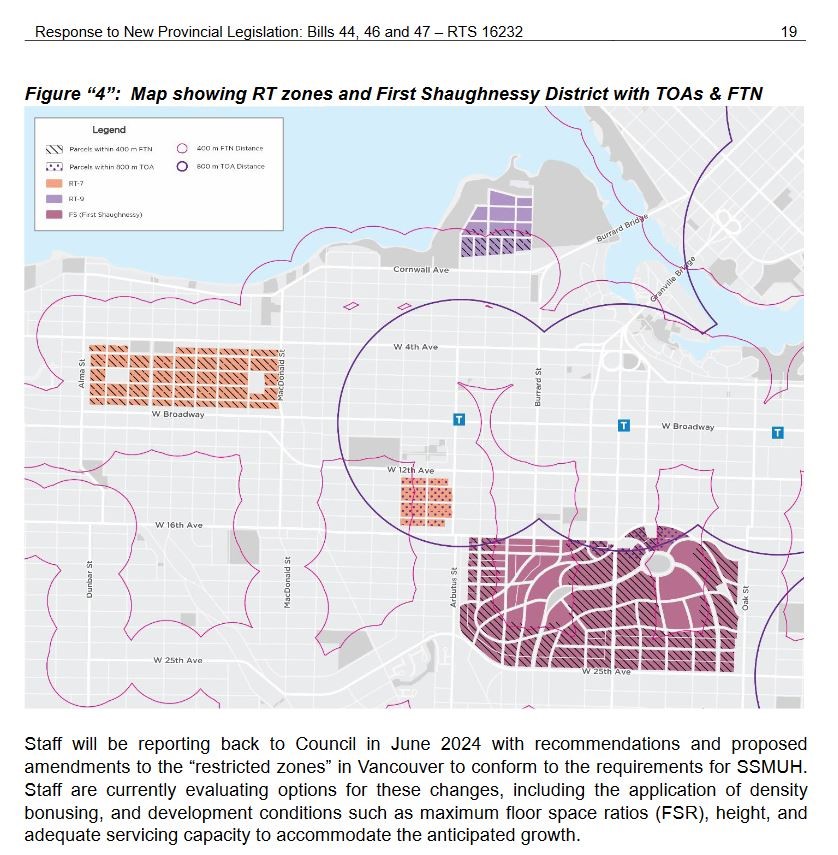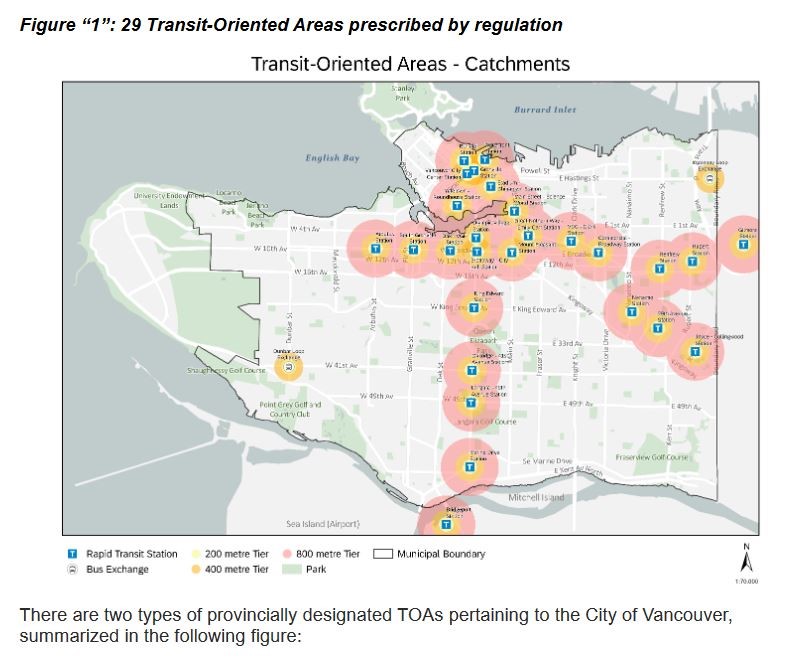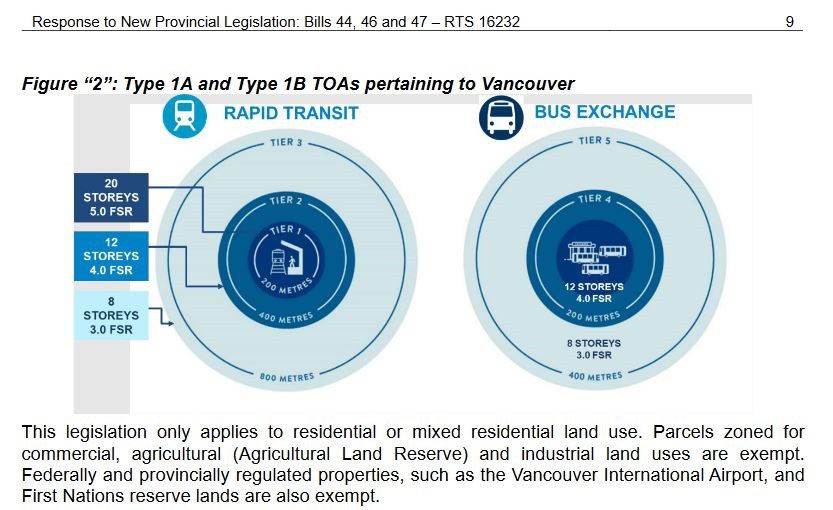PDF version LINK HERE.
May 13, 2025
City of Vancouver
Dear Mayor Ken Sim and Councillors,
Re: BC Bill 13 (Misc. Statutes Amendment Act) and Bill 15 (Infrastructure Projects Act)
The Coalition of Vancouver Neighbourhoods (CVN) strongly urges Mayor, Council and City staff to oppose BC Bill 13 (Misc. Statutes Amendment Act) and Bill 15 (Infrastructure Projects Act) currently proposed by the provincial government. These bills are misleadingly named and in fact, are a major overreach of Provincial powers to transfer municipal authority over land use planning and development to the Province.
The Union of BC Municipalities (UBCM) has raised concerns about the lack of consultation with municipalities and substantial consequences. However, since many of the amendments directly affect the Vancouver Charter, the City of Vancouver should publicly demand that the legislation not proceed further without substantial meaningful public and stakeholder consultation, including affected municipal governments and local communities .
Time is of the essence since Bill 13 has already received Second Reading and is now in Committee.
Bill 15 has received much more attention, but Bill 13 is of equal concern and consequence.
Bill 13 – Clause 9, 10 & 11, amends the Housing Supply Act to include all City of Vancouver by-laws defined as “Vancouver land use provision” that covers provisions in the Vancouver Charter including the following and allows the Province to control them directly.
(a) section 292 (1) [subdivision control];
(b) section 306 (1) [by-laws respecting building regulation];
(c) section 562 (1) [Council powers respecting official development plan];
(d) section 565 (1) [zoning by-law];
(e) section 565.14 (1) [providing affordable and special needs housing units elsewhere];
(f) section 565.192 (1) [providing affordable and special needs housing units elsewhere];
(g) section 565.2 (1) [housing agreements for affordable and special needs housing];
(h) section 565A (1) [by-laws];
(i) section 565D (2) [occupancy of phase out suite];
(j) section 565F (1) [landscaping requirements];
(k) section 571A (1) and (1.1) [sign by-laws];
(l) section 571AA (1) [relaxation of sign by-laws].
Bill 13 – Clause 47 – Changes the Vancouver Charter to deem that for City by-laws, “a provision of a by-law has no effect if it is inconsistent with a Provincial enactment.“
The proposed changes to the Vancouver Charter also appear to mean that even if an existing Vancouver by-law has not been changed to meet a Provincial enactment, or the City enacts a new bylaw that is inconsistent with the Provincial mandates, an applicant (developer) can apply for what is allowed by the Provincial enactment regardless of the City’s by-laws, and the City would be forced by legislation to approve it.
For instance, in an existing zone in Vancouver (RT multiplex character conversions, or RM4 four storey rental apartment and condo buildings) that may not allow what the Province has enacted for 20 storeys and density of 5.5 FSR near but several blocks away from a transit station on a side street, a developer could still apply for development to the City for this, and the City would be obligated to process the application.
This would create confusion and undermine City authority since there may be legitimate planning reasons for why the City would not allow this on a particular site due to infrastructure, lot configuration, too small a site, park shadowing, mid-block without a lane, heritage buildings, significant trees, or local context. Or the City may not have yet been able to do the necessary planning work to change the zoning.
Bill 15 covers all provincially designated infrastructure such as the recent Bill 47 (2023) for Transit Oriented Development Areas (TOD). Should it become law, it would allow the Province to directly administer and approve all land use permits and approvals for any infrastructure project and related provincially designated development areas such as Transit Oriented Development Areas (TOD). This could affect many municipalities in the province. The Bill would give all of the legislative tools to the Province to directly approve and administer all permits for land use for Transit Oriented Areas in the province. In the city of Vancouver, these areas cover almost the entire City, including a vast track of land if the UBCx Subway Extension is approved. This bill could have huge implications for municipal finances as well.
These provincial powers are major overreach into municipal affairs. We urge you to take immediate action to address these issues with the Province and to work with other municipalities and UBCM to have these bills withdrawn. Please see attached actual related text and direct links..
Sincerely,
Co-Chairs Larry Benge & Dorothy Barkley
CVN Steering Committee,
Coalition of Vancouver Neighbourhoods
Network Groups of the Coalition of Vancouver Neighbourhoods
Arbutus Ridge Community Association
Cedar Cottage Area Neighbours
Dunbar Residents Association
Fairview/South Granville Action Committee
Grandview Woodland Area Council
Greater Yaletown Community Association
Kitsilano-Arbutus Residents Association
Kits Point Residents Association
NW Point Grey Home Owners Association
Oakridge Langara Area Residents
Residents Association Mount Pleasant
Riley Park/South Cambie Advisory Group
Shaughnessy Heights Property Owners Assoc.
Strathcona Residents Association
Upper Kitsilano Residents Association
West End Neighbours Society
West Kitsilano Residents Association
West Point Grey Residents Association
West Southland Residents Association
Attachments
Reference:
CityHallWatch: https://cityhallwatch.wordpress.com/2025/05/09/provincial-bills-13-15-undemocratic-withdraw-analysis/
Vancouver Sun, Erick Villagomez: https://vancouversun.com/opinion/op-ed/opinion-when-local-planning-becomes-provincial-command
Vancouver Sun, Vaughn Palmer: https://vancouversun.com/opinion/columnists/bc-ndp-may-need-to-tweak-fast-track-law-as-greens-dig-in-their-heels
Progress of Bills: https://www.leg.bc.ca/parliamentary-business/overview/43rd-parliament/1st-session/bills/progress-of-bills










